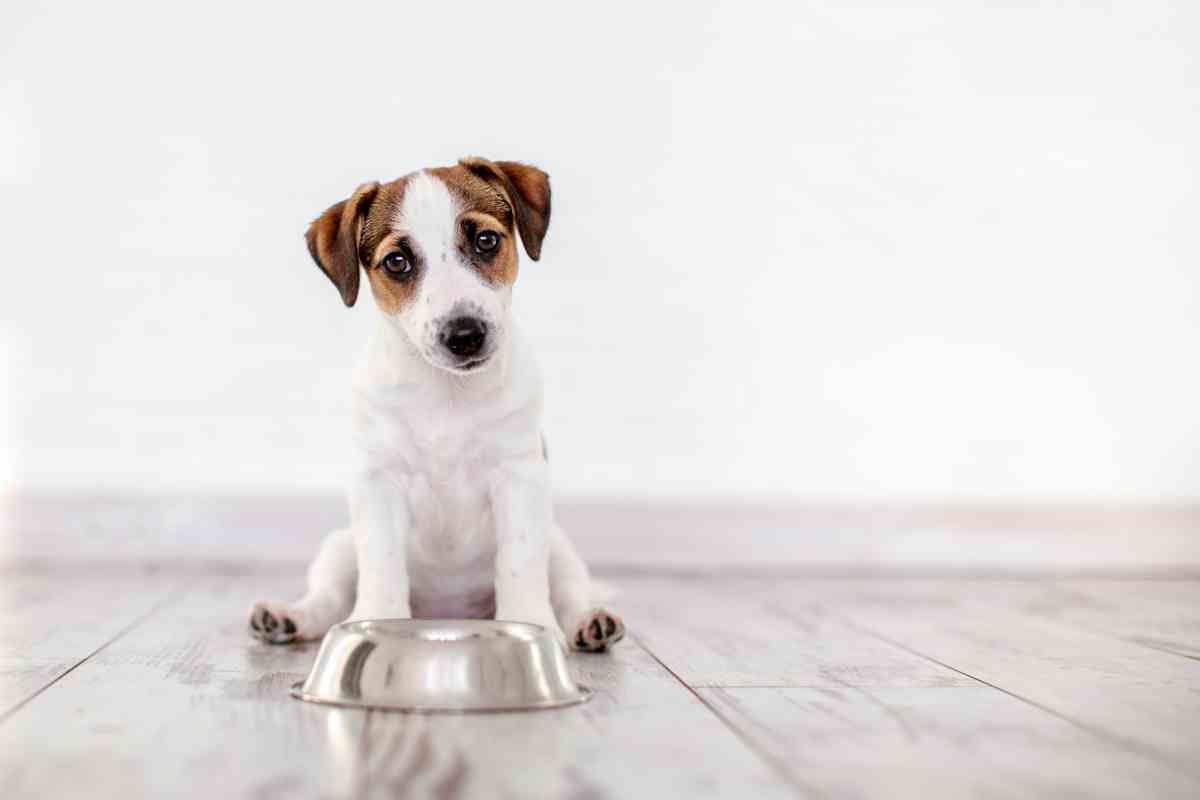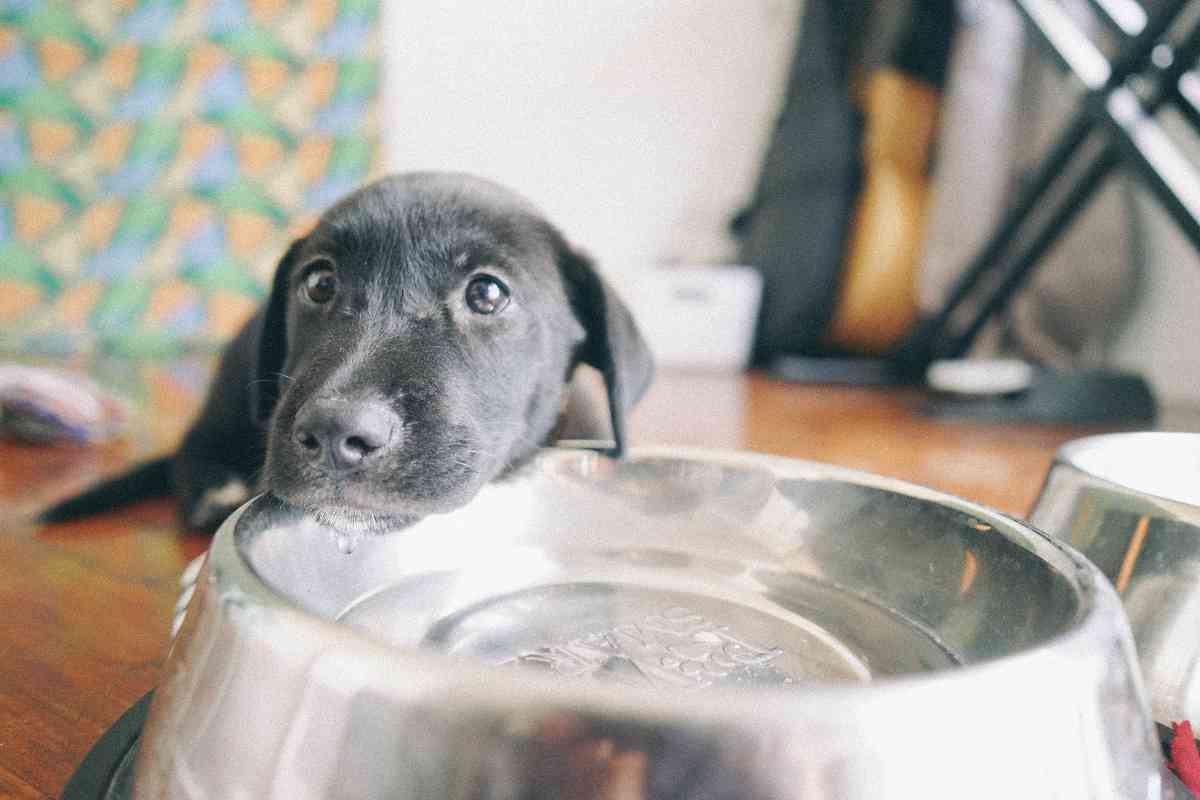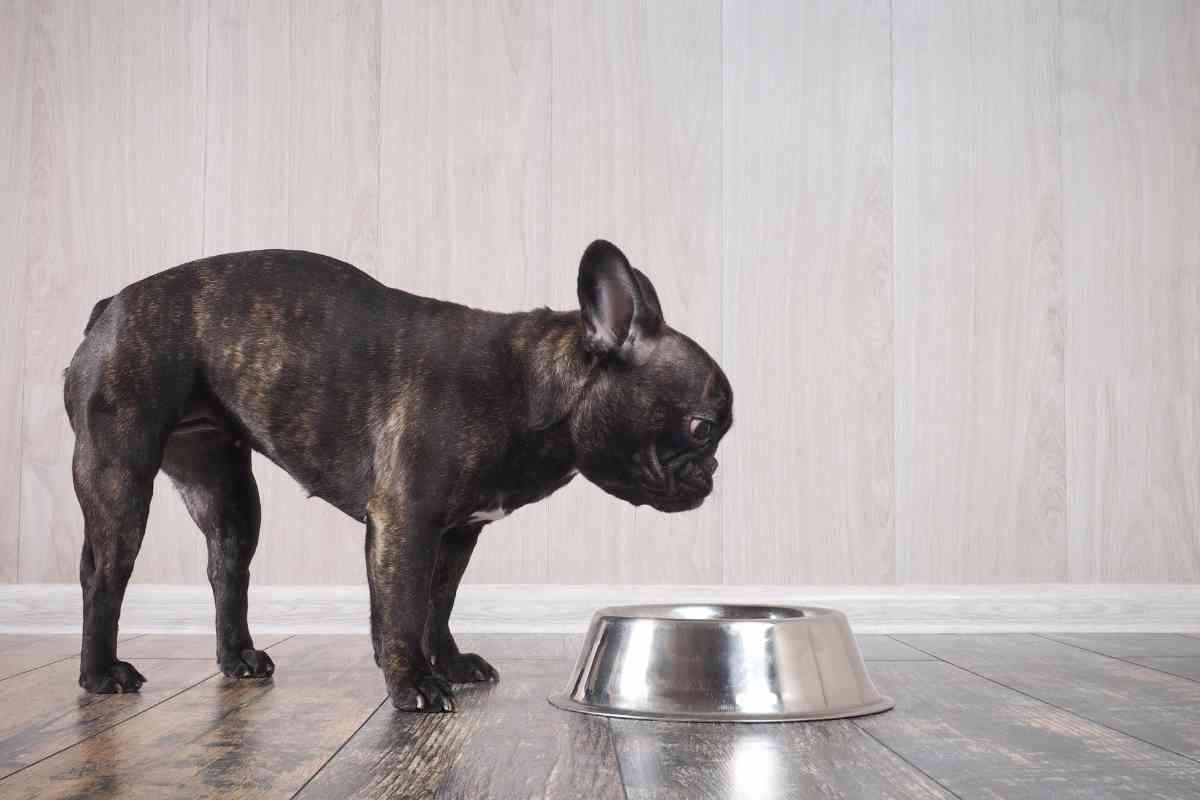What Time to Stop Giving Puppy Water: Evening Hydration Guidelines
Are you wondering how to best care for your new furry friend, especially when it comes to hydration? Much like young children, puppies require attentive care, particularly in their intake of food and water. Let’s dive into understanding and managing your puppy’s water needs, balancing their health and training.

Related Posts! Can a 5-week-old puppy drink water? How about a 3-week-old puppy drinking water?
When should I stop giving my puppy water before bed?
To minimize nighttime accidents and aid in house training, it’s best to stop giving your puppy water about two hours before bedtime. This approach balances their need for hydration with ensuring a restful night for both you and your puppy, while also reinforcing their bladder control.
Hydration is a key concern for any dog owner. Puppies, especially after playtime or exercise, need consistent access to water throughout the day. However, managing your puppy’s water intake, particularly towards the end of the day, is crucial. Why? Well, withholding water for the last two hours before sleep can help prevent overnight accidents, aiding in a consistent house training routine.
Key Takeaways
- Monitoring Water Intake: Ensuring your puppy is well-hydrated yet not overhydrated is vital for their health and your peace of mind.
- Nighttime Routine: Limiting water before bedtime can reduce the need for a bathroom break in the middle of the night.
- Balance is Key: While it’s important to restrict water intake at night, don’t forget puppies need a steady supply of water during the day to stay hydrated.
Related Post! What Time Should A Puppy Go To Bed?
Understanding Puppy Hydration: A Closer Look
Hydration is more than just quenching thirst. It’s about ensuring your puppy’s overall health and development.
- Transition from Milk to Water: Puppies usually start drinking water around 3 to 4 weeks of age. It’s essential to transition them properly from mother’s milk to water.
- Water Bowl Essentials: Always keep the water dish filled with clean, fresh water.
- Adjusting to Needs: Remember, a puppy’s hydration needs change based on their activity level, age, and even the environmental temperature.

Hydration and Health: A Vital Connection
Hydration affects your puppy’s health significantly. It helps prevent urinary tract infections, aids in digestion, and is crucial for overall well-being. Be mindful of illnesses like vomiting or diarrhea, as they may indicate dehydration.
- Health Conditions: Conditions like kidney disease, diabetes, and even Cushing’s disease can alter a puppy’s water intake. Regular vet check-ups are essential to monitor these conditions.
- Watching for Overhydration: Too much water intake, known as water intoxication, can be dangerous. Look out for symptoms like coordination issues, excessive salivation, or pale gums.
Water Intake Regulation
When it comes to your puppy’s hydration, think of it as a delicate balancing act. Just like a plant needing the right amount of water, puppies require careful monitoring of their water intake to stay healthy and aid in house training. Let’s explore how you can effectively manage your puppy’s hydration needs.
Adjusting Water Availability: A Key Step
It’s not just about how much your puppy drinks, but also when. During the day, puppies need a consistent amount of water to stay hydrated. But as night approaches, tweaking this amount can lessen the chances of accidents and support effective house training. However, it’s crucial to tailor this to your puppy’s age and level of bladder control.
- Monitor Drinking Patterns: Keep an eye on how much your puppy drink and adjust the cups of water provided based on their daily activities and age.
- Nighttime Hydration Needs: As bedtime nears, gradually decrease the water available. The last drink should be given about an hour before bedtime, followed by a last potty break.
Identifying Dehydration Risk in Puppies

Dehydration can sneak up quickly, especially in active or ill puppies. It’s important to recognize the signs:
- Signs of Dehydration: Look for lethargy, dry gums, and less elastic skin. If your puppy’s pupils appear sunken or there’s a loss of appetite, these could also be indicators of dehydration.
- Preventive Measures: Encourage regular drinking throughout the day. Adding flavor to the water, like a bit of chicken broth, can entice them to drink more.
Balancing Nighttime Hydration
Understanding your puppy’s nighttime hydration needs is crucial. Withholding water entirely is not advisable as it risks dehydration, but a full dog’s water bowl at bedtime might lead to accidents.
- Nighttime Schedule: Implement a routine where your puppy has a last drink an hour before sleep, followed by an opportunity to relieve themselves. This helps in reducing nighttime urination while ensuring they are hydrated.
- Adjusting to Puppy’s Needs: Every puppy is different. Monitor their response to these changes and adjust the ounce of water offered as they grow. A general rule is to provide an ounce of water per pound of body weight each day.
Consulting a Professional
Always keep an eye out for symptoms of dehydration or unusual changes in drinking habits. If there are concerns, it’s best to consult a veterinarian. They can provide a diagnosis and guidance tailored to your puppy’s specific needs.
By understanding and applying these principles of water intake regulation, you can ensure your puppy remains healthy, hydrated, and well on their way to successful house training. Remember, consistent monitoring and adjusting are key to a happy, hydrated pup!
Puppy Water Management Strategy
As dedicated pet owners, we’re committed to effectively managing our puppy’s water intake. This is not just about keeping them hydrated; it’s also a crucial part of their overall health and housetraining process. Let’s explore how to do this in a way that benefits both you and your furry companion.

Establishing a Water Schedule
A key to successful water management is integrating it into your puppy’s daily routine. Align their water consumption with meal times. Ensuring fresh water is available during and after meals not only promotes healthy drinking habits but also supports their digestion.
- Consistency is Key: Offer water at regular intervals, especially after your puppy has eaten.
- Feeding and Watering: Pairing feeding times with water availability helps establish a routine your puppy can easily follow.
Toilet Training and Water Control
An essential aspect of potty training is controlling your puppy’s water access. We recommend allowing frequent access to water throughout the day, but start to limit it as the evening approaches. This strategy helps reduce the likelihood of nighttime accidents and aids in reinforcing bladder control.
- Evening Routine: Gradually decrease water availability in the evening, with the last drink given a couple of hours before bedtime.
Water Restriction Considerations
While it’s beneficial to restrict water before sleep to assist with housetraining, it’s crucial to do this without risking dehydration. Be mindful of health risks like kidney disease or diabetes, which can be exacerbated by inadequate hydration.
- Monitor Hydration: Ensure your puppy has access to enough water during active periods, particularly after playtime or in warmer temperatures.
Water-Related Puppy Behavior
Observing your puppy’s drinking habits provides insights into their health. Excessive thirst, for example, could be a symptom of a medical issue.
- Behavioral Indicators: Keep an eye on how much and how often your puppy drinks. Changes in these patterns warrant a visit to the vet.
Seeking Professional Guidance
Never hesitate to consult a professional if you’re concerned about your puppy’s water intake or signs of dehydration. A veterinarian is an invaluable resource in assessing your puppy’s health and offering specific advice.
- Expert Advice: Regular vet check-ups and professional guidance are essential, especially when unusual symptoms like fever or changes in body temperature are observed.
By following these strategies, you can successfully manage your puppy’s hydration needs, contributing positively to their health and housetraining. Remember, understanding your puppy’s unique needs and seeking professional advice when necessary are key to a happy, healthy pet.